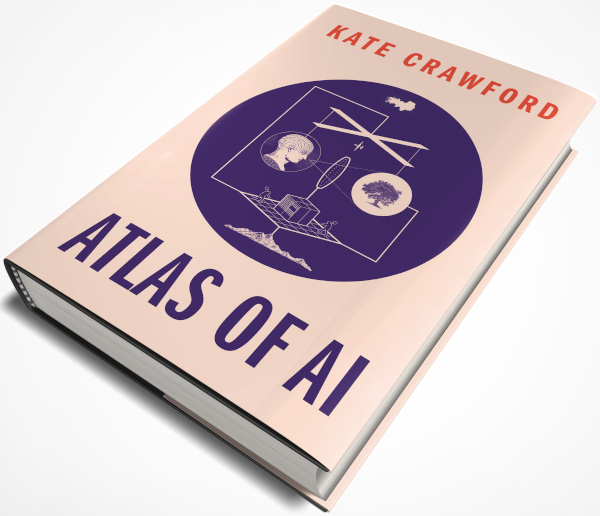The hidden costs of artificial intelligence, from natural resources and labor to privacy, equality, and freedom
"Eloquent, clear and profound--this volume is a classic for our times. It draws our attention away from the bright shiny objects of the new colonialism through elucidating the social, material and political dimensions of Artificial Intelligence."--Geoffrey C. Bowker, University of California, Irvine
What happens when artificial intelligence saturates political life and depletes the planet? How is AI shaping our understanding of ourselves and our societies? In this book Kate Crawford reveals how this planetary network is fueling a shift toward undemocratic governance and increased racial, gender, and economic inequality. Drawing on more than a decade of research, award-winning science, and technology, Crawford reveals how AI is a technology of extraction: from the energy and minerals needed to build and sustain its infrastructure, to the exploited workers behind "automated" services, to the data AI collects from us.
In Atlas of AI: Power, Politics, and the Planetary Costs of Artificial Intelligence, to be published April 6 by Yale, Crawford reveals how the global networks underpinning AI technology are damaging the environment, entrenching inequality, and fueling a shift toward undemocratic governance. She takes us on a journey through the mining sites, factories, and vast data collections needed to make AI "work" — powerfully revealing where they are failing us and what should be done.
Rather than taking a narrow focus on code and algorithms, Crawford offers us a political and a material perspective on what it takes to make artificial intelligence and where it goes wrong. While technical systems present a veneer of objectivity, they are always systems of power. This is an urgent account of what is at stake as technology companies use artificial intelligence to reshape the world.
While technical systems present a veneer of objectivity and neutrality, Crawford shows how they are designed to serve and intensify existing systems of power. Drawing on a decade of original research, she shows how the new infrastructures of AI reflect the beliefs and perspectives of a small group of people and serve the interests of the few at the expense of the many.


